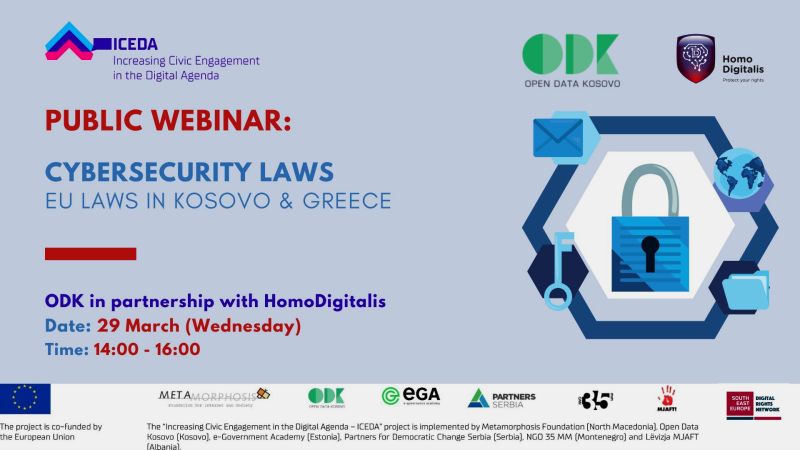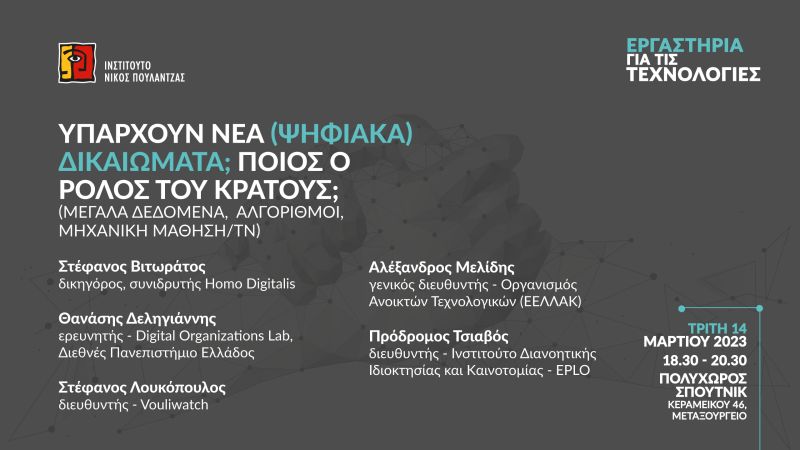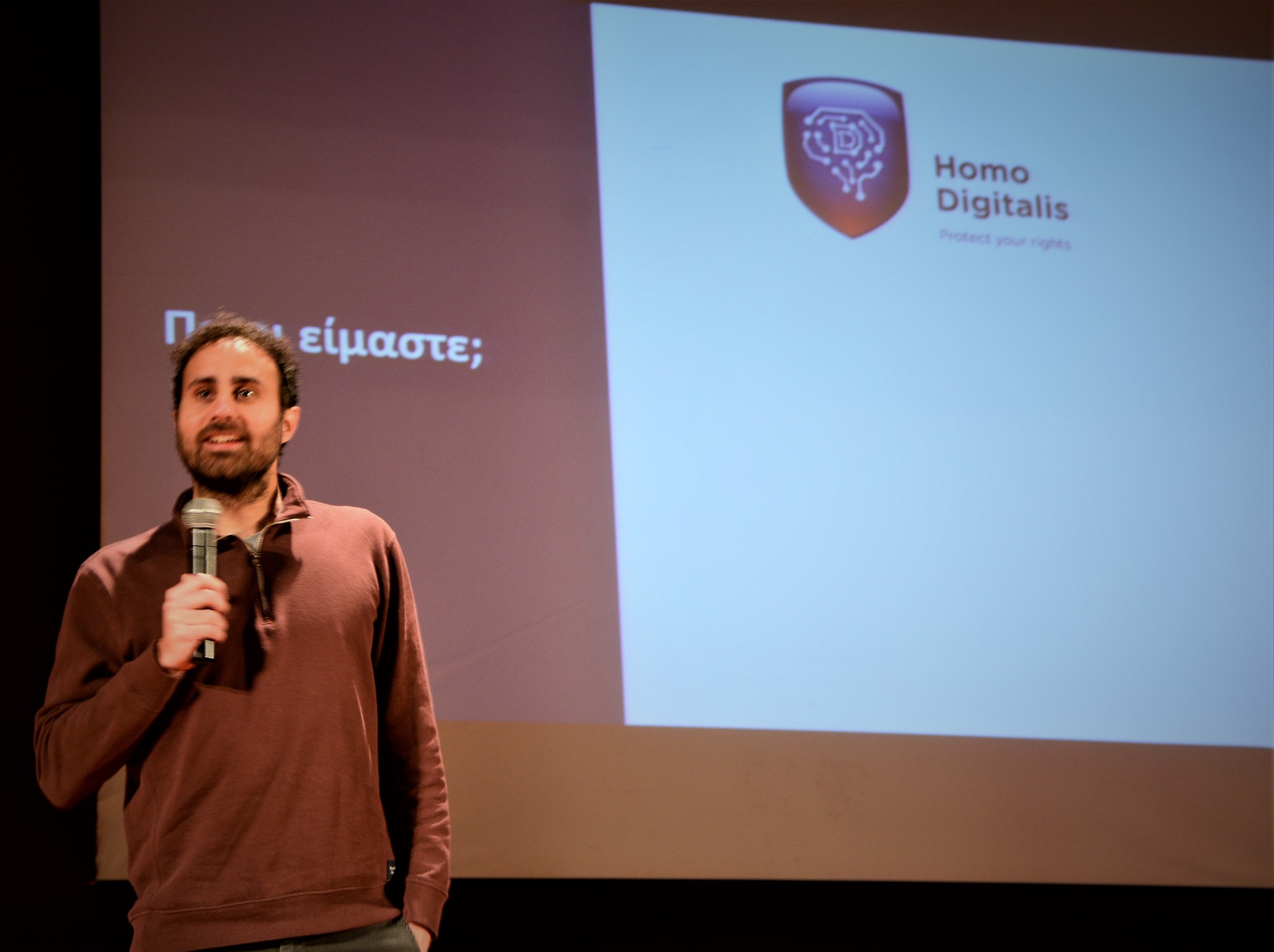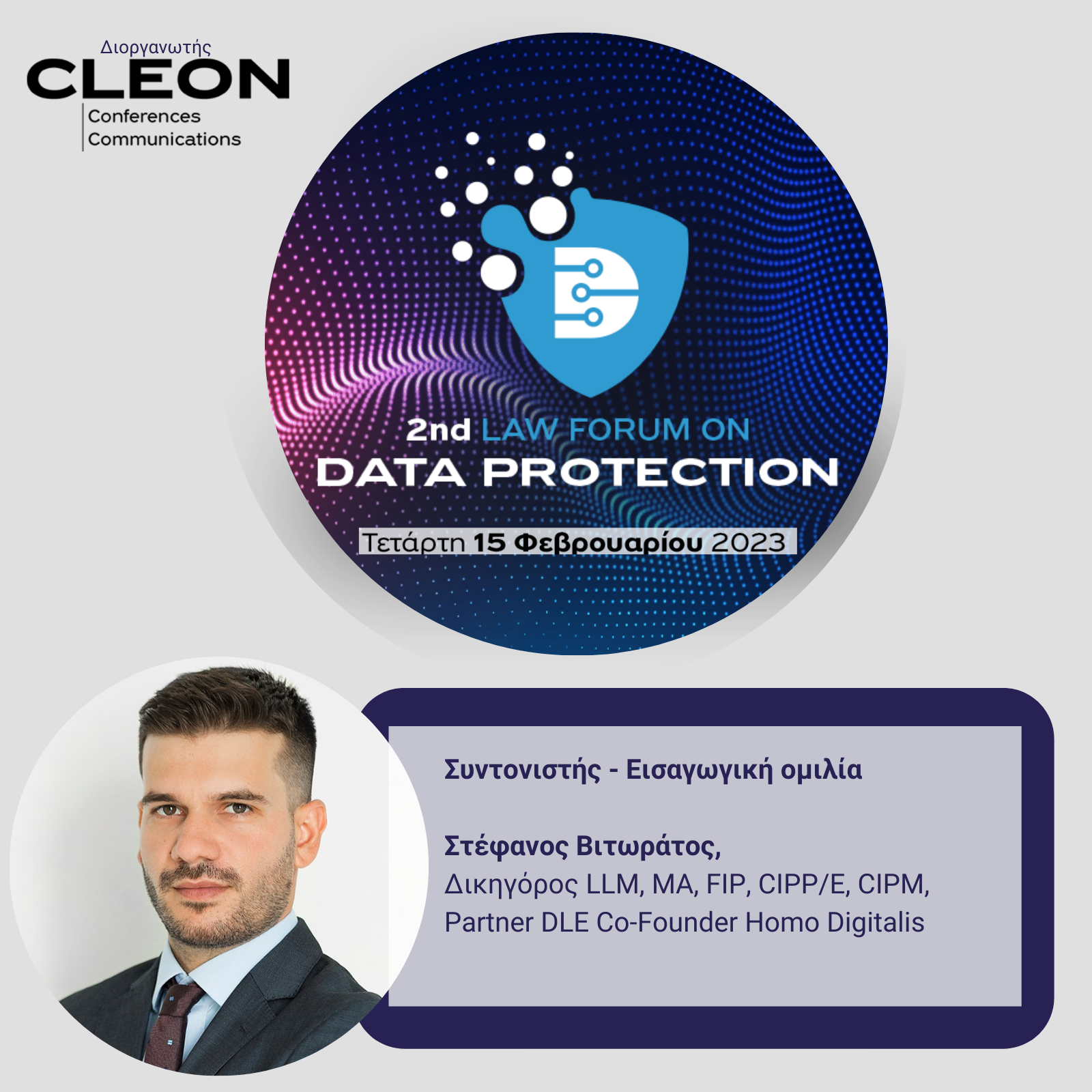We cut our New Year's cake for 2023!
Homo Digitalis started this year more dynamic, bigger and united than any other year.
We celebrated with our members the new page that starts for us, with lots of smiles, new ideas and goals, wine, food, gifts and dancing!
Once again a big thank you to our members and volunteers for all that we have accomplished together these 5 years!
This day would not be as special without all of you and the support of the artists & people who actively help us!
So here’s to the next ones!
Participation & Speech at the event celebrating 20 years of EDRi in Brussels
On 21-22 March Homo Digitalis was in Brussels to celebrate the birthday of European Digital Rights!
It was way back in 2003, when a handful of organisations and activists from 7 countries decided to found it! Twenty wonderful years later, full of dynamic interventions in the field of digital rights protection, EDRi has grown and its unique network of organisations now consists of 47 organisations in more than 22 countries!
At this great celebration, EDRi and its important contribution were spoken about by the Executive Vice President of the European Commission Margrethe Vestager, the President, Vice President and Director of EDRi, Anna Fielder, Thomas Lohninger and Claire Fernandez, respectively, Signal Technology Foundation President Meredith Whittaker, MEPs from different political parties, and many important contributors to EDRi’s activities, such as its former Director Joe McNamee and co-founder Sjoera Nas!
It is a huge honour for Homo Digitalis to be invited to talk about our actions and experiences! EDRi and its network were the main inspiration for the creation of Homo Digitalis in 2018, and we are honored to be its Greek member!
Homo Digitalis was represented by our President and Secretary of the Board Elpida Vamvaka and Eleftherios Chelioudakis, with the latter giving a speech about Homo Digitalis’ active participation in the EDRi network already in 2018.
Development of partnerships with JOIST Innovation Park and iED in Larissa
Yesterday, we were at the JOIST Innovation Park, a unique phygital ecosystem that fosters innovation and knowledge transfer in the fields of entrepreneurship, technology, science, art and design.
There, we had the great pleasure to tour the – high quality – spaces of the park, to meet the members of the JOIST team, the iED – Institute of Entrepreneurship Development and their partners, and to discuss together a number of interesting topics on the interaction between the use of new technologies and the protection of Human Rights.
Thank you very much for your excellent hospitality! Our team was represented at the meeting by Anastasios Arampatzis and Eleftherios Chelioudakis.
Learn more about Joist Innovation Park here.
Talk about DORA and NIS2 in an educational webinar
On March 29th, 15:00 – 17:00 GMT, Homo Digitalis will have the great pleasure to participate in the online webinar organized by Open Data Kosovo in the field of cybersecurity!
There we will talk about recent legislative initiatives at EU level, such as the DORA Regulation and the revised NIS2 Directive, while experts will also talk about the current situation in the neighbouring country.
Our team will be represented by Anastasios Arampatzis and Eleftherios Chelioudakis.
Free Registration here and more information about the event here.
The webinar is produced in the framework of the project “Increasing Civic Engagement in the Digital Agenda – ICEDA” with the support of the European Union, the South East Europe (SEE) Digital Rights Network and the SHARE Foundation!
Participation in a speech at the Nikos Poulantzas Institute
Tomorrow, Tuesday 14/3, Stefanos Vitoratos representing Homo Digitalis will participate in the series of events of the Nikos Poulantzas Institute “Workshops on Technologies – Tuesdays of March” and more specifically in the thematic “Are there new (digital) rights? What is the role of the state?”
The workshops are held in person and aim to explore from different perspectives what better/more democratic, fairer, inclusive technologies might mean.
We look forward to seeing you tomorrow and discussing in person!
More information and registration here.
We participate in the Digital Policy Leadership Summit 2023 in Brussels
Last week, Homo Digitalis had the great pleasure of attending the Digital Policy Leadership Summit organized by Aspiration in Brussels!
The two-day event was dedicated to sharing knowledge, building trust and developing skills between organisations and professionals involved in digital policy issues in Europe. Our team was represented by our Board Secretary Eleftherios Chelioudakis.
We would like to thank the organizers for their kind invitation! You can find out more on the organizers’ website.
Pro bono Educational activities in schools: Leontio Lyceum of Nea Smyrni
Continuing our presentations in schools across the country, Kostas Kakavoulis and Stefanos Vitoratos were at the
Lycee Leonin-Nea Smyrni (Leontio Lyceum of Nea Smyrni) where they discussed with more than 250 students of the 1st and 2nd grade about cyberbullying!
Young generations are fully familiar with the internet, social media and online gaming and it is important to learn from an early age how to avoid and/or deal with cyberbullying phenomena.
We would like to thank the school management and all the teachers for their welcome and hospitality.
Η Homo Digitalis στο "2ο νομικό φόρουμ για την προστασία των δεδομένων"
On Wednesday 15/2 the “2nd Law Forum on Data Protection” is taking place at the Divani Caravel Hotel, which Homo Digitalis is sponsoring.
Stefanos Vitoratos will be the moderator of the conference, which will be analyzed by speakers of renowned prestige interesting data protection issues, such as the everyday life of the DPO and the use of personal data to improve everyday life and fight crime!
For more information and registration visit the organisers’ website.
Homo Digitalis celebrates Safer Internet Day with students in Heraklion, Crete
Part A’
Today is Safer Internet Day and Homo Digitalis celebrated it with students all over Greece
Elpida Vamvaka and Eleftheria Vamvaka spoke with 4th and 6th grade students of the Zanneio Education Centre in Heraklion, Crete.
There were discussions about our digital selves, cyber bullying and the protection of digital rights and personal data.
Videos of the #SuperCyberKids series, created in collaboration with the (ISC)2 Hellenic Chapter and ICSI Hellas, were shown, while during the breaks cookies were distributed to the students of Zanneio, in order to inform them about the use of cookies on the internet.
We would like to thank the School Managements and all the teachers for their welcome and hospitality.








